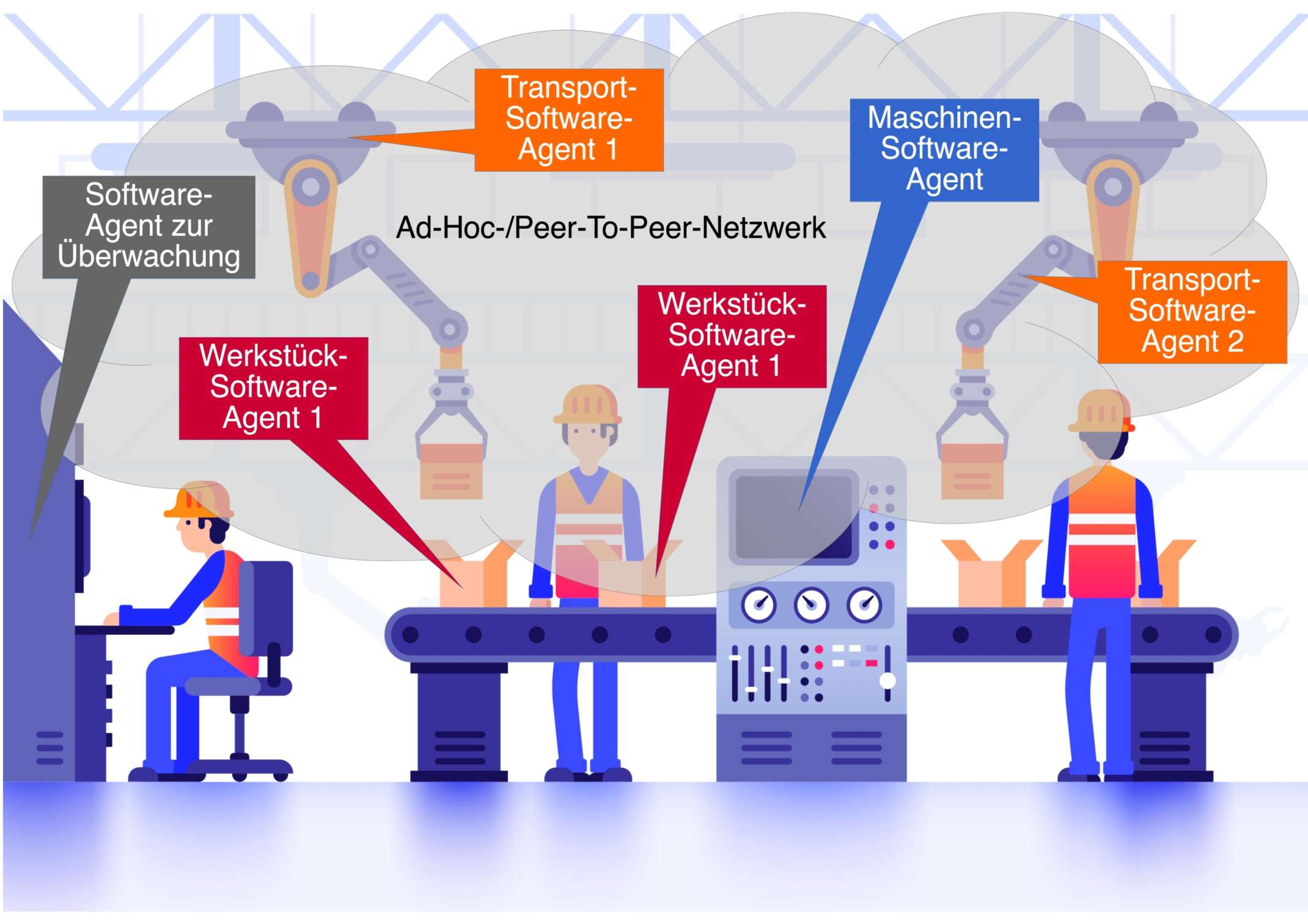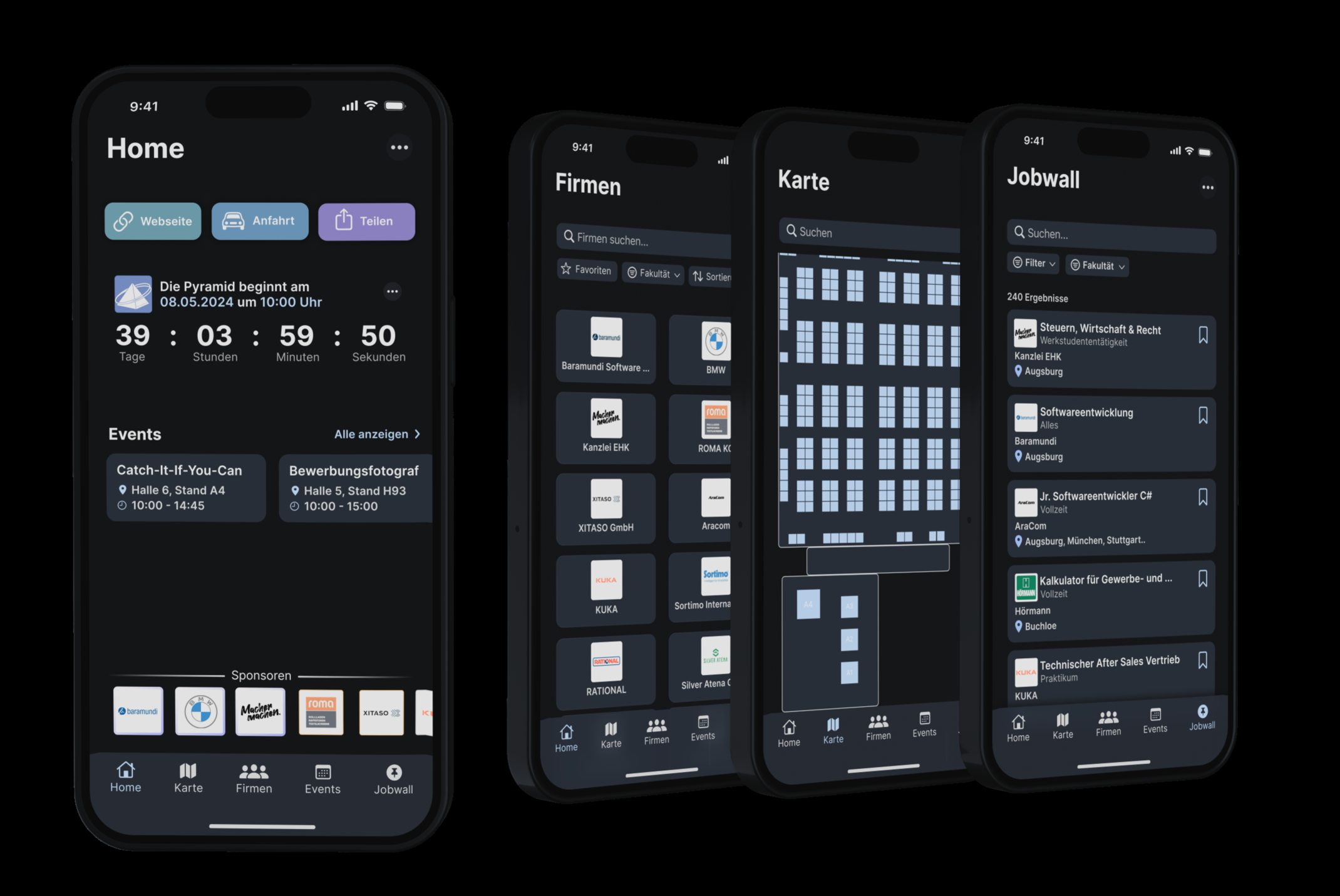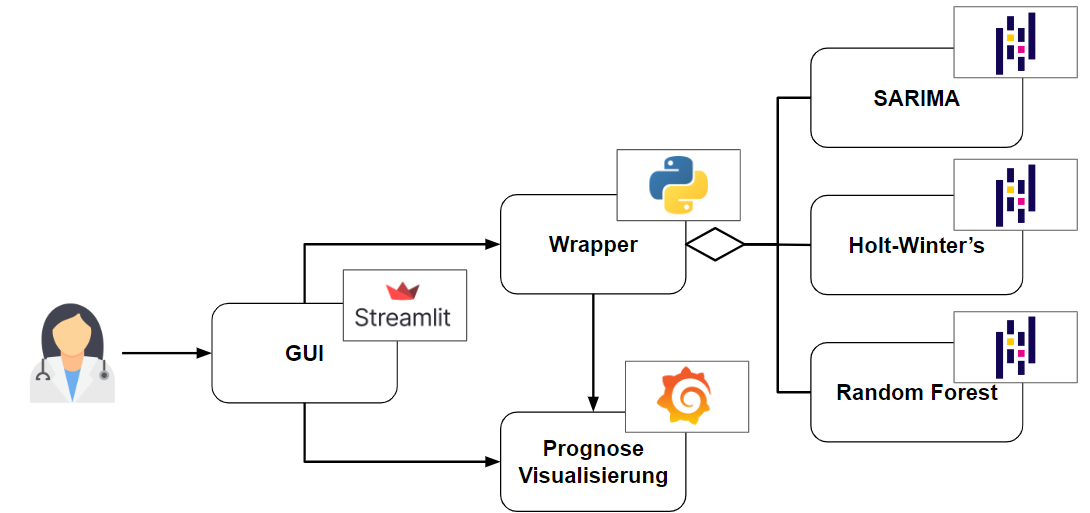Intelligent planning of carers
A machine learning application predicts patient volumes and thus facilitates nursing staff scheduling in order to efficiently manage staff shortages.
In cooperation with XITASO GmbH, an application was developed that uses machine learning to predict and visualise patient volumes in order to improve nursing staff scheduling. Based on historical data, the time series forecasting method is used, whereby models such as Random Forest, SARIMA and Holts Winters seasonal method are utilised. The model quality is evaluated by RMSE, MAPE and MAE. The predictions are presented in a user-friendly web interface, which enables care facilities to optimise staff planning in line with demand. →










